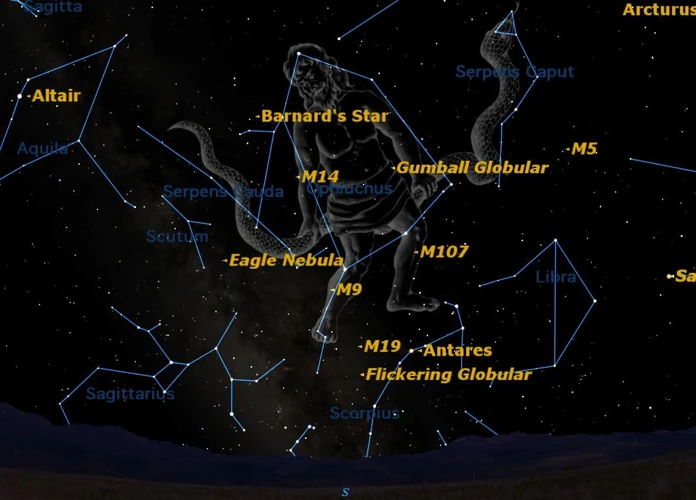Welcome to the captivating world of astrology, where the alignment of celestial bodies holds the key to understanding our personalities, relationships, and destinies. While most of us are familiar with the twelve zodiac signs that have guided our lives for centuries, there lingers a perplexing enigma in the depths of astrological history – the mysterious origins of Ophiuchus, the forgotten thirteenth zodiac sign. Unexplored and often overlooked, Ophiuchus has a rich mythology and symbolism that begs to be unearthed. Join us on a journey through time and space as we unravel the secrets of Ophiuchus, and discover the implications this celestial anomaly holds for astrology as we know it. Get ready to delve into the uncharted territory of the zodiac and explore the enduring mystery of Ophiuchus.
The Ancient Zodiac
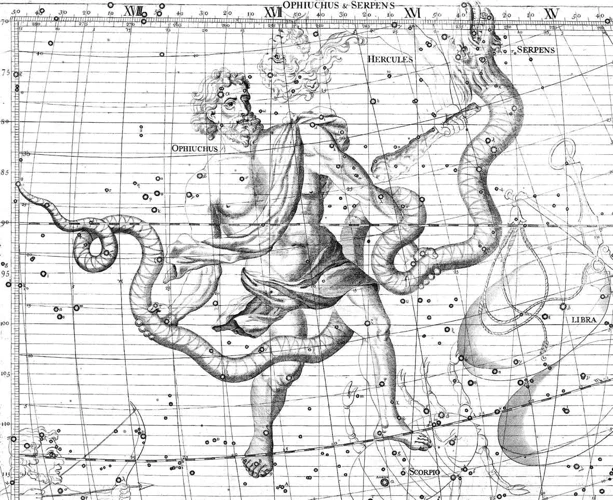
The concept of the zodiac dates back thousands of years, encompassing ancient civilizations and their intricate beliefs in the cosmos. Within this realm of celestial wisdom, twelve zodiac signs have long held sway over human existence, guiding our interactions, personality traits, and even our destiny. Yet, hidden amidst the well-known dozen lies an enigmatic secret – the forgotten thirteenth zodiac sign. This mysterious entity, known as Ophiuchus, has evaded the spotlight, residing in the shadows of astrological practices throughout history. Delving into the history and influence of the zodiac signs, we embark on a quest to unravel this ancient puzzle, exploring the evolution of the zodiac sign symbols and their role in ancient astrology. Prepare to plunge into the depths of astronomical mystique as we shed light on the intriguing origins of the zodiac.
The 12 Zodiac Signs
The twelve zodiac signs, also known as the astrological signs, are symbols deeply embedded in human culture and astrology. Each sign represents a distinct personality archetype, offering insights into an individual’s traits and tendencies based on their birth date. The zodiac signs are as follows: Aries, Taurus, Gemini, Cancer, Leo, Virgo, Libra, Scorpio, Sagittarius, Capricorn, Aquarius, and Pisces. These signs are associated with specific elements, such as fire, earth, air, and water, which further enhance their unique characteristics. Dating back to ancient times, the zodiac signs have left an indelible mark on human fascination with the mysteries of the universe. The symbols representing each sign have evolved over time, adapting to cultural influences and reflecting the ever-changing understanding of astrology’s significance. Whether you align with the fiery determination of Aries or the intuitive empathy of Pisces, the twelve zodiac signs continue to shape our perception of self and provide insight into our cosmic connections.
An Unexplored Enigma
The existence of Ophiuchus as the thirteenth zodiac sign remains shrouded in obscurity, making it an unexplored enigma within the realm of astrology. Despite its omission from mainstream astrological practices, Ophiuchus carries an air of mystery and intrigue. This enigmatic constellation and its associated astrological sign have long captivated the curiosity of astrology enthusiasts, researchers, and skeptics alike. It poses a multitude of questions that beg for answers – Why was Ophiuchus omitted from the traditional twelve zodiac signs? What knowledge or wisdom does it hold that has been overlooked for centuries? Does it possess unique traits and characteristics that have eluded our comprehension? As we embark on an exploration of Ophiuchus, we delve into the depths of this uncharted territory, seeking to unravel the secrets and unravel the layers of its enigmatic existence.
Ophiuchus: The Forgotten Zodiac Sign
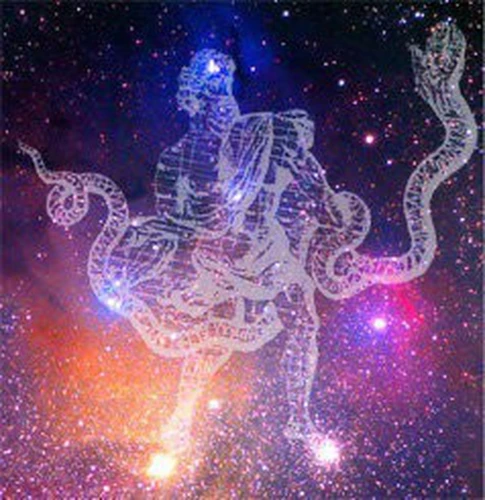
Nestled between Scorpio and Sagittarius lies a hushed and enigmatic presence in the zodiac realm – Ophiuchus, the forgotten thirteenth zodiac sign. Throughout the annals of history, Ophiuchus has been shrouded in obscurity, rarely granted the attention it deserves. While the twelve traditional zodiac signs have garnered widespread recognition, the existence and significance of Ophiuchus have remained unexplored and veiled. Drawing upon historical references as our guide, we embark on a journey to unmask the hidden mysteries surrounding Ophiuchus, delving into its symbolism and the profound implications it holds within the realm of astrology. Brace yourself for an enthralling adventure as we venture into the depths to unveil the forgotten zodiac sign of Ophiuchus.
Historical References
Historical references to Ophiuchus may be scarce, but they offer fascinating glimpses into its existence. One of the earliest known mentions of Ophiuchus can be found in ancient Greek texts, where it is associated with the figure of Asclepius, the god of healing and medicine. In Egyptian mythology, Ophiuchus has been linked to Imhotep, a revered physician and architect. The Babylonians recognized the constellation associated with Ophiuchus as the “Serpent Holder,” often depicted with a serpent coiled around their body. These historical connections illustrate the presence of Ophiuchus in diverse cultures, underscoring the enduring fascination with this mysterious zodiac sign. Despite the limited historical references available, the existence of Ophiuchus within ancient mythologies serves as a testament to its significance and enigmatic nature.
The Symbolism of Ophiuchus
The symbolism of Ophiuchus holds a profound significance that sets it apart from the other twelve zodiac signs. Represented by a powerful serpent entwined around a staff, Ophiuchus embodies healing, wisdom, and transformation. The serpent, a potent symbol of rebirth and rejuvenation, represents Ophiuchus’ ability to shed the old and embrace the new. This symbolism is associated with the idea of transcending limitations and reaching higher levels of consciousness. The staff that Ophiuchus holds is the Rod of Asclepius, a traditional symbol of medicine and healing. This highlights Ophiuchus’ connection to the medical arts and emphasizes their role as healers and life-givers. The symbolism of Ophiuchus inspires us to tap into our inner wisdom, embrace transformation, and seek balance and harmony within ourselves and the world around us. It invites us to explore the depths of our own healing powers and strive for spiritual growth. The enigmatic and powerful symbolism of Ophiuchus adds a mysterious and captivating element to the zodiac, calling upon us to delve deeper into the realms of self-discovery and enlightenment.
Ancient Mythologies and Ophiuchus
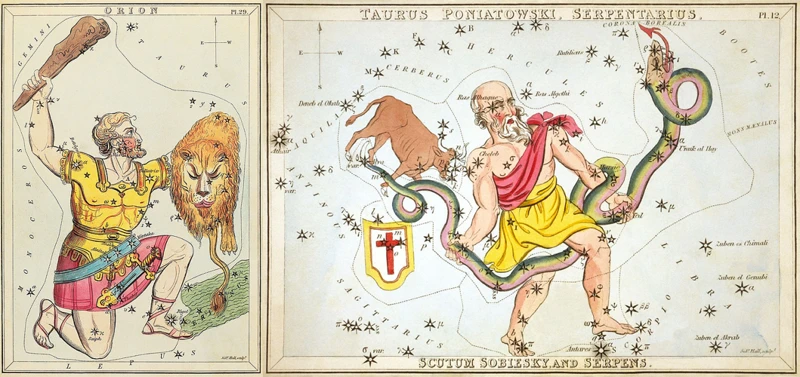
Ancient mythologies are replete with fascinating tales that intertwine with the celestial realm, and Ophiuchus finds its place among these captivating narratives. In Greek mythology, Ophiuchus is believed to represent the healer Asclepius, the son of Apollo, who possessed the ability to resurrect the dead. This symbolism makes Ophiuchus a unique figure, straddling the line between mortality and immortality. Egyptian mythology also touches upon the presence of Ophiuchus, associating it with the goddess Serpentarius, who shares characteristics of both snakes and humans. The Babylonians, too, acknowledged the existence of Ophiuchus, depicting it as the god of knowledge and the divine art of healing. These mythological connections paint a vivid picture of Ophiuchus’ significance and its influential role in ancient belief systems. Whether it be healing, resurrection, or symbiotic relationships with serpents, Ophiuchus stands as a celestial figure deeply intertwined with the fabric of human mythology and imagination.
Greek Mythology
Greek mythology, with its pantheon of gods and epic tales, weaves a fascinating narrative around the enigmatic figure of Ophiuchus. Within Greek mythology, the story of Ophiuchus revolves around the legendary healer and demigod, Asclepius. Asclepius, born into a lineage of powerful healers, possessed unparalleled skills in the art of medicine. His exceptional abilities caught the attention of the gods, who grew increasingly concerned about his influence upon mortals. Envious of his success, Zeus struck down Asclepius with a bolt of lightning, resulting in his death. However, to honor his incredible healing powers, Zeus placed Asclepius among the constellations, giving rise to the Ophiuchus constellation. This constellation, depicted as a man holding a serpent, symbolizes the struggle between mortality and immortality, healing and disease. The inclusion of Ophiuchus in Greek mythology showcases the valorization of healing arts and serves as a reminder of the power that lies in the hands of mortals when it comes to matters of health and well-being. The story of Ophiuchus in Greek mythology provides a pivotal connection between the world of astrology and the realm of ancient legends, reinforcing the significance of this forgotten zodiac sign.
Egyptian Mythology
In the realm of Egyptian mythology, there is a fascinating connection to the enigmatic Ophiuchus. In Egyptian cosmology, Ophiuchus is associated with the powerful deity Imhotep, known as the god of healing and medicine. Imhotep’s name translates to “the one who comes in peace,” emphasizing his benevolent nature. He is often depicted as a man with a serpent entwined around a staff, a symbol that bears resemblance to the Caduceus, which is commonly associated with healing and medicine in modern times. Imhotep’s serpent symbolism mirrors the serpent imagery found in the constellation of Ophiuchus. This alignment between the Egyptian god and the celestial figure further highlights the significance of Ophiuchus in Egyptian mythology, weaving together the threads of astrology, healing, and divine wisdom. The inclusion of Ophiuchus in the tapestry of Egyptian mythology unveils a captivating chapter in the ancient lore of the zodiac, inviting us to explore the mystical connections between the celestial realm and the beliefs of ancient civilizations.
Babylonian Mythology
Babylonian mythology presents a fascinating perspective on Ophiuchus, providing insights into the celestial significance of this elusive zodiac constellation. In Babylonian astrology, Ophiuchus is associated with the god Enki, also known as Ea. Enki is considered the god of wisdom, knowledge, and water, representing the primordial source of life and creation. Within the realm of Babylonian mythology, Enki is depicted as a deity who possesses the ability to heal and restore life. This association aligns with the constellation of Ophiuchus, which is often symbolized by a figure holding a serpent. The serpent represents rejuvenation, transformation, and healing, linking it to Enki’s power of restoration in Babylonian myth. The Babylonians believed that those born under Ophiuchus possessed the traits of power, healing, and wisdom, reflecting the characteristics attributed to Enki himself. Through their mythological lens, the Babylonians recognized the celestial importance of Ophiuchus as a bearer of divine wisdom and healing energies. This unique perspective sheds light on the mystique surrounding Ophiuchus, providing a glimpse into its significance in Babylonian mythology and its enduring presence in astrological traditions.
The Astronomical Perspective
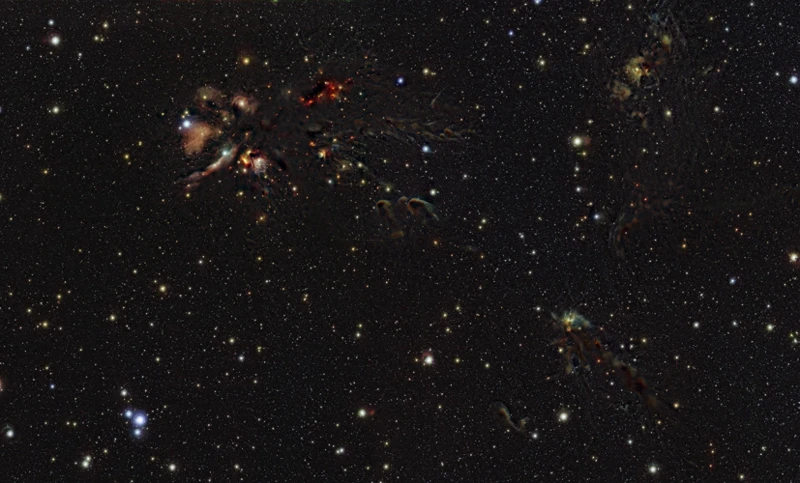
To truly grasp the mystery of Ophiuchus, we must turn our gaze to the vast expanse of the night sky and explore the astronomical perspective. Nestled among the constellations, Ophiuchus takes its place as a prominent figure in the celestial tapestry. It is located along the ecliptic, the path traced by the Sun in its annual journey, and resides close to the constellation Scorpius. With its distinct shape resembling a man holding a serpent, this cosmic enigma has fascinated astronomers for centuries. Observing the Ophiuchus constellation reveals a captivating array of stars, including the bright alpha star, Rasalhague. However, its exclusion from the traditional zodiac has raised questions about its astrological significance. Aligning the stars and examining their astrological impact offers a crucial piece of the puzzle, shedding light on the complex relationship between the heavens and human existence. So, let us navigate the celestial realm and unlock the secrets that lie within this enigmatic constellation.
The Ophiuchus Constellation
The Ophiuchus Constellation, also known as “The Serpent Bearer,” is a fascinating celestial entity that has captured the curiosity of astronomers for centuries. Located in the southern hemisphere, Ophiuchus lies between the constellations of Scorpius and Sagittarius. Its unique position along the ecliptic, the path followed by the Sun, Moon, and planets, has caused astronomers and astrologers alike to question its significance.
In terms of appearance, the Ophiuchus Constellation is formed by a group of stars that resemble a figure holding a snake. The brightest star in Ophiuchus, Alpha Ophiuchi, also known as Rasalhague, shines prominently in the night sky. Surrounding this radiant star are other luminous bodies, such as Sabik and Vega Ophiuchi, adding to the celestial intrigue.
The Ophiuchus Constellation has a rich astronomical history, with early references dating back to ancient Babylonian times. It was recognized as a distinct constellation by the ancient Greeks, who associated it with the legendary healer and serpent bearer, Asclepius. In Greek mythology, Asclepius was renowned for his ability to revive the dead, symbolizing healing and renewal. This connection to medicine and healing has led some to attribute Ophiuchus with qualities of intuition, wisdom, and the pursuit of knowledge.
From an astronomical perspective, the Ophiuchus Constellation holds significance beyond its mythology. It is home to numerous interesting objects, including star clusters, nebulae, and even a black hole. One such example is the Rho Ophiuchi Molecular Cloud, a vast cloud of interstellar gas and dust that gives birth to new stars.
In astrology, the Ophiuchus Constellation has caused much debate and controversy. Some astrologers propose that Ophiuchus should be recognized as the thirteenth zodiac sign, disrupting the traditional twelve sign system. This idea suggests that those born under Ophiuchus possess unique personality traits and characteristics that differ from their neighboring zodiac signs. However, mainstream astrology has not fully embraced Ophiuchus as a recognized sign, leaving its astrological implications a subject of ongoing discussion and interpretation.
The Ophiuchus Constellation remains an enigmatic and captivating discovery within the realm of astronomy and astrology. Its celestial position, mythological connections, and potential astrological influence continue to intrigue scholars and stargazers alike. Delving deeper into the mysteries of Ophiuchus unveils a fascinating cosmic puzzle that invites us to question and explore the vastness of the universe.
Astrological Impact
The astrological impact of Ophiuchus is a subject that has sparked much debate and speculation among astrologers and enthusiasts alike. The addition of Ophiuchus as the thirteenth zodiac sign has raised questions about how it influences our personalities and compatibility with other signs. Some astrologers believe that those born under Ophiuchus possess a unique blend of traits, combining the characteristics of neighboring signs such as Scorpio and Sagittarius. These individuals are said to have a profound connection with healing, wisdom, and spiritual enlightenment. However, due to its relatively recent inclusion in astrology, there is no unanimous consensus on the specific attributes associated with Ophiuchus. Some believe that it disrupts the balance and symmetry of the twelve-sign system, while others argue that it adds a necessary dimension to the astrological landscape. As we strive to understand the astrological impact of Ophiuchus, it is important to remain open-minded and embrace the potential for new discoveries and interpretations within the realm of astrology.
Ophiuchus and Astrology

When it comes to astrology, the inclusion of Ophiuchus sparks both curiosity and confusion. This mysterious thirteenth zodiac sign challenges the traditional framework of astrological interpretations, leaving astrologers and enthusiasts pondering over its significance and impact. As we dig deeper into the realm of Ophiuchus, we uncover the unique personality traits associated with this celestial anomaly. Often described as intuitive, charismatic, and driven, those born under the influence of Ophiuchus possess an intriguing blend of traits that set them apart from the rest of the zodiac. Additionally, exploring the compatibility of Ophiuchus with other signs adds further complexity to the astrological tapestry. Could Ophiuchus be the missing piece to unlocking a deeper understanding of ourselves and our connections with others? Prepare to unravel the enigmatic relationship between Ophiuchus and astrology as we venture into uncharted astrological territory.
The Personality Traits of Ophiuchus
When it comes to the personality traits of Ophiuchus, this enigmatic zodiac sign is shrouded in an aura of curiosity and intrigue. While not widely recognized in mainstream astrology, individuals born under Ophiuchus are said to possess a unique blend of characteristics that set them apart from the traditional twelve zodiac signs. Known for their magnetic charm and intense charisma, Ophiuchus individuals have a natural ability to captivate those around them. They are often regarded as charismatic leaders, drawing others towards their compelling presence.
In addition to their charisma, Ophiuchus natives are believed to have a deep-rooted desire for knowledge and wisdom. They are known to be avid learners, constantly seeking to expand their understanding of the world and its mysteries. With a curious and inquisitive nature, they possess a thirst for knowledge that drives them to explore unconventional subjects and delve into esoteric wisdom.
Ophiuchus individuals are known for their strong intuition and psychic abilities. They possess a heightened sixth sense, often having premonitions or experiencing vivid dreams that provide them with valuable insights. This intuitive nature enables them to navigate life’s complexities with a certain level of ease, as they are guided by their inner wisdom.
Despite their many positive traits, Ophiuchus individuals can also be prone to inner conflicts and internal struggles. This internal battle often stems from a constant desire for personal growth and transformation. They may feel a sense of restlessness and a need for continuous self-improvement, which can sometimes lead to feelings of dissatisfaction or unfulfillment.
The personality traits of Ophiuchus individuals paint a picture of a dynamic and complex personality. They embody a captivating charm, a thirst for knowledge, and a strong intuition. While their presence may be elusive in traditional astrological practices, these traits offer a glimpse into the enigmatic nature of Ophiuchus and the potential depths of its personality.
Compatibility of Ophiuchus
When it comes to compatibility, Ophiuchus adds an intriguing twist to the world of astrology. As the thirteenth zodiac sign, it possesses unique traits that set it apart from the traditional twelve. People born under the sign of Ophiuchus are known for their magnetic charisma and natural allure, making them highly sought after in relationships. Their passionate and adventurous nature makes them compatible with a variety of other zodiac signs. Ophiuchus gravitates towards fellow fire signs like Aries and Leo, drawn to their shared enthusiasm and zest for life. The harmonious energy between these signs ignites a fiery and passionate connection. Additionally, Ophiuchus finds compatibility with air signs such as Gemini and Libra, as their intellectual compatibility brings forth stimulating conversations and a mutual appreciation for ideas. On the other hand, Ophiuchus may face challenges in relationships with more grounded signs like Taurus and Capricorn, as their practical nature may clash with Ophiuchus’ spontaneous and free-spirited approach. However, compatibility in astrology is not solely determined by the zodiac sign, as individual birth charts and other astrological factors come into play. It’s essential to consult a professional astrologer to gain a comprehensive understanding of one’s compatibility, including the influence of Ophiuchus in relationships. With its unique characteristics and magnetic charm, Ophiuchus certainly offers a captivating and intriguing twist to the compatibility within the zodiac realm.
The Shift in Zodiac Signs
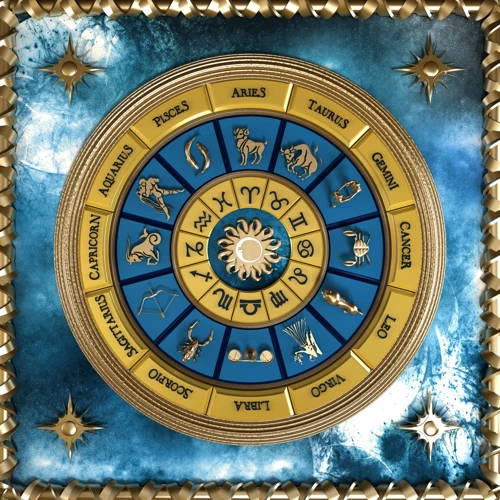
In the world of astrology, where the alignment of stars and planets shapes our destiny, a phenomenon of great controversy has emerged – the shift in zodiac signs. While we grew up associating ourselves with a particular zodiac sign, whispers of a thirteenth sign, Ophiuchus, have sparked a heated debate. This revelation has led to a reevaluation of our astrological identities, leaving many questioning their true zodiac sign and the implications this shift holds for their lives. Some argue that this shift has significant impacts on our personalities, relationships, and compatibility, while others dismiss it as an irrelevant curiosity. As we navigate through this perplexing territory, we explore the 13th zodiac controversy and the implications for astrology. Brace yourselves for an intriguing journey into the complexities of the zodiac as we unravel the mysteries that lie at the heart of this cosmic conundrum.
The 13th Zodiac Controversy
The inclusion of a 13th zodiac sign, Ophiuchus, into the astrological system has been a subject of much debate and controversy.
The controversy surrounding the 13th zodiac sign stems from the interpretation of the zodiac as a fixed system that has remained unchanged for centuries. Traditional astrology proponents argue that the zodiac has always consisted of 12 signs, each representing a specific period of the year. However, a growing number of astrologers and enthusiasts suggest that the inclusion of Ophiuchus is necessary to account for the actual positioning of celestial bodies.
The root of the controversy lies in the precession of the equinoxes, which is the gradual shift in the Earth’s axis.
Due to this axial precession, the alignment of the Earth in relation to the stars has slightly shifted over time. While the zodiac signs were originally aligned with the constellations, this gradual shift has caused a discrepancy between the two. As a result, Ophiuchus, a constellation that lies between Scorpio and Sagittarius, has come into question as a potential addition to the zodiac system.
However, critics argue that incorporating Ophiuchus would disrupt the existing astrological framework, rendering birth charts and horoscopes inaccurate and requiring a significant recalibration of astrological interpretation.
Astrologers remain divided on whether Ophiuchus should be officially recognized as the 13th zodiac sign.
While some embrace the inclusion of Ophiuchus as a means to refine and enhance astrological practices, others fear that it could dilute the essence of the traditional zodiac system.
Implications for Astrology
Implications for Astrology:
The inclusion of Ophiuchus as the thirteenth zodiac sign has profound implications for the field of astrology. It challenges the traditional framework that has been in place for centuries and raises questions about the accuracy and relevance of astrological interpretations. Astrologers and enthusiasts alike are left contemplating the impact of this newfound celestial entity on the horoscopes and personality traits associated with each zodiac sign.
One major implication is the potential shift in astrological readings and predictions. The addition of Ophiuchus means that the dates and characteristics previously attributed to each sign may need to be reassessed. This has sparked debates and discussions within the astrological community, as practitioners attempt to navigate this uncharted territory.
The emergence of Ophiuchus brings to light the question of whether other astrological anomalies may exist beyond our current understanding. Could there be additional zodiac signs or celestial influences that have yet to be discovered? This opens up a world of possibilities and challenges astrologers to expand their knowledge and explore alternative interpretations.
Astrology as a discipline relies on the belief that celestial bodies hold sway over human behavior and destiny. The inclusion of Ophiuchus challenges the established system and asks astrologers to reconsider their interpretations and predictions. It prompts a reevaluation of the foundational principles on which astrology is built and encourages a more nuanced understanding of the cosmic forces that shape our lives.
As astrology continues to evolve and adapt to new discoveries, the implications of Ophiuchus serve as a reminder that our understanding of the cosmos is ever-evolving. It invites us to question and explore, to embrace the mysteries that lie beyond our current knowledge, and to remain open to the possibilities that arise when we push the boundaries of our understanding. Ultimately, the inclusion of Ophiuchus in the zodiac challenges astrologers and enthusiasts alike to expand their horizons and embrace the complexity and wonder of the universe.
Exploring Ophiuchus Today
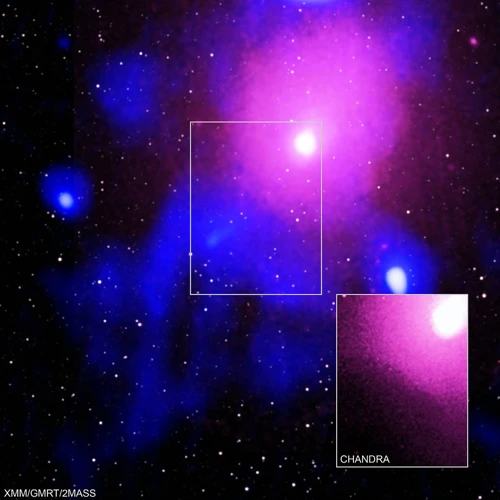
In the modern world of astrology, Ophiuchus may still be a relatively obscure and mysterious figure, but its presence continues to intrigue and captivate. Today, astrologers and enthusiasts alike are exploring Ophiuchus, seeking to understand its significance and integrate it into contemporary astrological practices. While some traditional astrologers do not recognize Ophiuchus as an official zodiac sign, there is a burgeoning movement that acknowledges its existence and incorporates its influence into astrological interpretations. The discussions surrounding Ophiuchus have sparked debate and curiosity, with astrologers striving to uncover its unique traits and uncover its compatibility with other signs. As interest in Ophiuchus grows, it is becoming more apparent that this enigmatic figure has the potential to reshape and redefine our understanding of the zodiac. Whether one embraces or dismisses Ophiuchus, there is no denying its enduring mystery and the impact it has on the ever-evolving field of astrology.
Ophiuchus in Modern Astrology
Ophiuchus, the long-forgotten thirteenth zodiac sign, has experienced a resurgence in modern astrology, sparking debates among enthusiasts and skeptics alike. In recent years, there has been a growing interest in incorporating Ophiuchus into astrological practices, reflecting a shift in the way astrology is interpreted and understood. While traditional astrology acknowledges twelve zodiac signs, the inclusion of Ophiuchus expands the framework, allowing for a more nuanced understanding of personality traits and cosmic influences.
In modern astrology, those born between November 29th and December 17th are considered to fall under the sign of Ophiuchus. People born under this sign are believed to possess a unique blend of characteristics, drawing from both Scorpio and Sagittarius. Ophiuchus individuals are often described as intuitive, wise, and inclined towards transformation and healing. With Scorpio’s intensity and Sagittarius’ adventurous spirit, they embody a powerful combination of traits that sets them apart from the traditional zodiac signs.
Some astrologers argue that including Ophiuchus adds depth and accuracy to astrological readings, providing a more complete understanding of an individual’s astrological profile. However, it is important to note that not all astrologers recognize Ophiuchus as a valid zodiac sign. The debate surrounding the inclusion of Ophiuchus in modern astrology has sparked conversations about the validity and flexibility of astrological systems.
It is worth mentioning that the newfound interest in Ophiuchus has also raised questions about the implications for those whose zodiac sign shifts to Ophiuchus under this revised system. This shift challenges the familiar sense of self and identity attached to a particular zodiac sign, prompting individuals to reevaluate their astrological makeup and potentially explore the characteristics associated with Ophiuchus.
While the significance and acceptance of Ophiuchus in modern astrology continue to be a topic of discussion, its emergence signifies the evolving nature of astrological practices and our ongoing fascination with the cosmos. Whether Ophiuchus becomes firmly established as the thirteenth zodiac sign or remains an alternative interpretation, its presence in modern astrology invites us to explore new possibilities and expand our understanding of the celestial forces that shape our lives.
Popularity and Belief
The popularity and belief in Ophiuchus as a valid zodiac sign are subjects of much debate and speculation. While Ophiuchus has gained some attention in recent years, it still remains relatively unknown or disregarded by many. Some astrologers argue that including Ophiuchus would disrupt the established system and make it more complicated, while others embrace its addition as a way to expand astrological understanding. The belief in Ophiuchus varies among individuals, with some avidly incorporating it into their astrological readings and interpretations, while others dismiss it as inconsequential or even non-existent. Online communities and social media have played a significant role in spreading awareness and generating discussions about Ophiuchus, contributing to its growing popularity. However, it’s important to note that the acceptance and belief in Ophiuchus as a zodiac sign largely depend on personal preferences and openness to exploring alternative astrological perspectives. The debate rages on, leaving Ophiuchus suspended between widespread recognition and the fringes of popular belief.
The Enduring Mystery
The enduring mystery surrounding Ophiuchus continues to captivate astrologers and enthusiasts alike. Despite its historical references and mythological significance, Ophiuchus remains shrouded in ambiguity, leaving us with more questions than answers. One of the most perplexing aspects is the lack of consensus on Ophiuchus as a zodiac sign. While some scholars argue for its inclusion, others dismiss Ophiuchus as an anomaly. This controversy fuels the debate over whether Ophiuchus should be recognized as the thirteenth zodiac sign, altering the entire astrological system as we know it. The implications for astrology are profound, as the addition of Ophiuchus would require a realignment of dates and the reinterpretation of characteristic traits associated with each zodiac sign. The enduring mystery of Ophiuchus pushes us to question the very foundations of astrology, challenging us to explore uncharted territories in pursuit of a deeper understanding of the cosmos and its influence on human existence. As we navigate through this enigmatic realm, the allure of Ophiuchus beckons us to unlock its secrets and embrace the mystery that lies within.
Conclusion
In conclusion, the enigma of Ophiuchus, the forgotten thirteenth zodiac sign, continues to captivate and perplex astrologers and enthusiasts alike. Throughout our exploration of its historical references, ancient mythologies, astronomical perspective, and astrological impact, we have uncovered a world of mystery and intrigue. While Ophiuchus may have been overshadowed by the more well-known twelve zodiac signs, it maintains a significant place in celestial history.
From the Greek myth of Asclepius to the Babylonian celestial observations, Ophiuchus has left its mark in various mythologies and cultures. Its symbol, the serpent bearer, carries deep symbolism of healing, wisdom, and enlightenment. Additionally, the Ophiuchus constellation itself offers a breathtaking spectacle in the night sky, reminding us of the grandeur and complexity of the universe.
The personality traits of Ophiuchus individuals exhibit qualities of both Scorpio and Sagittarius, making them passionate, magnetic, and intellectually curious. However, compatibility within the zodiac remains a debatable topic, with some arguing that Ophiuchus brings a unique dynamic to relationships.
The controversy surrounding the inclusion of Ophiuchus as the thirteenth zodiac sign has sparked heated debates among astrologers, raising questions about the validity and implications of a shift in astrological systems. While some embrace Ophiuchus as an exciting addition, others argue that it disrupts the traditional order and understanding of astrology.
In modern astrology, Ophiuchus has gained some recognition, although its popularity and belief among the general public vary. Some astrology enthusiasts enthusiastically embrace Ophiuchus as a significant piece of the astrological puzzle, while others remain skeptical or simply unaware of its existence.
As we conclude our journey into the mysterious origins of Ophiuchus, one thing remains clear: the enduring mystery surrounding this thirteenth zodiac sign. It serves as a reminder that despite our fascination and understanding of astrology, there is always more to explore, more celestial secrets waiting to be uncovered. Whether Ophiuchus becomes a staple in astrology or remains an enigma, its allure will continue to spark curiosity and ignite our imaginations as we gaze up at the starry heavens above.
Frequently Asked Questions
What is the significance of the zodiac signs in astrology?
The zodiac signs are believed to represent distinct personality traits and characteristics that influence an individual’s behavior, relationships, and even their destiny.
Why is Ophiuchus considered the 13th zodiac sign?
Ophiuchus is considered the 13th zodiac sign because it falls along the ecliptic, the path that the sun appears to follow across the sky, just like the other twelve zodiac signs.
What are the historical references to Ophiuchus?
Historical references to Ophiuchus can be found in ancient texts and artifacts from civilizations such as the Greeks, Egyptians, and Babylonians.
What symbolism is associated with Ophiuchus?
Ophiuchus is often associated with healing, wisdom, and spiritual enlightenment. The symbol of Ophiuchus is a serpent or snake, representing knowledge and transformation.
How does Ophiuchus fit into Greek mythology?
In Greek mythology, Ophiuchus is associated with the legendary healer Asclepius, who possessed great knowledge of medicine and was considered a demigod.
What role does Ophiuchus play in Egyptian mythology?
In Egyptian mythology, Ophiuchus is linked to the god Imhotep, who was revered as a physician and credited with immense healing abilities.
What do Babylonian myths say about Ophiuchus?
In Babylonian mythology, Ophiuchus is associated with the god Gilgamesh, a renowned hero and king known for his extraordinary strength and wisdom.
What is the Ophiuchus constellation?
The Ophiuchus constellation is a collection of stars that form the shape of a man holding a snake. It lies near the center of the Milky Way galaxy.
How does Ophiuchus impact astrology?
Ophiuchus challenges traditional astrological beliefs by introducing a thirteenth zodiac sign and potentially altering the interpretation of astrological charts and horoscopes.
What is the controversy surrounding the 13th zodiac sign?
The controversy surrounding the 13th zodiac sign revolves around the questioning of astrological accuracy and the potential shifting of dates and personality traits for individuals born under Ophiuchus.

